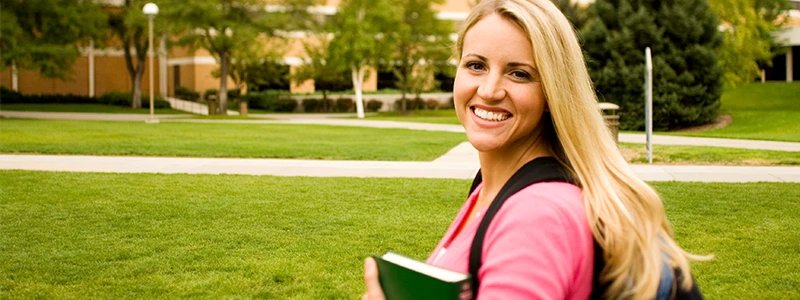10 tips for students heading abroad

Published 2017
As the mid-year holidays draw to a close, many students will be preparing to embark on a study abroad or student exchange program. While applications for these programs are usually processed well in advance, there are still a number of things you need to organise before you head to the airport.
Apply for OS-HELP
Students enrolled in a Commonwealth Supported Place are able to access an OS-HELP loan to help fund their overseas study experience. Like HECS-HELP and FEE-HELP, these loans are paid back once you begin earning above the repayment threshold ($54,126 in 2015–16). In 2015, students can borrow $6362 for a six-month study period, or $7635 if they are completing study in Asia. To receive an OS-HELP loan, you need to apply through your higher education provider.
Get all your documents together
There are a few important documents you need to gather before you depart. Make sure your passport is still valid and that the expiry date is more than six months after you are due to arrive home. You will also need to apply for a visa or entry permit. In your carry-on luggage, you should have your plane tickets, passport, visa documents, your letter of acceptance from the host institution, accommodation details, emergency contact details, academic transcripts and your medical record. You should also leave a copy of these documents with your family back home.
Check if you’re covered by travel insurance
Depending on the length of your stay and the type of overseas study you are completing, you may be covered by your home institution’s travel insurance. Some students will be covered during their entire time abroad, while others may only be covered during the academic semester, but not during any additional time they spend travelling before or after their studies.
Read about the local culture and customs
No matter where you choose to study, you’ll find that local customs and culture will vary from what you’re used to in Australia. The differences could be as small as remembering to tip when eating out to adhering to different religious customs and laws. The Smartraveller website features comprehensive information about every country.
Brush up on your language skills
If you’re completing your studies in a non-English-speaking country, try to practise your language skills as much as possible before you arrive. If you know someone who is fluent in the language, see if they will help you practise holding conversations in the language and ask them to teach you key phrases. Even if you’re heading to an English-speaking country, brushing up on the local slang can help clear up some confusion when interacting with your classmates and teachers.
Research potential travel destinations and attractions
Study abroad and student exchange programs are about more than just studying overseas — they offer a fantastic opportunity to experience life in a different country and travel to new and exciting destinations. Many students choose to spend some extra time before or after their studies travelling around their host country and neighbouring destinations. During the semester, you’ll have plenty of time to explore your local area, while weekends and study breaks are great for short trips away.
Pack early
The earlier you begin packing, the less likely you are to need a frantic last-minute shopping trip — or an express care package the moment you arrive. Make sure you have the correct adaptor for electrical appliances, that you have enough money to cover expenses during your first week and that you activate global roaming on your mobile phone. It’s also a good idea to check luggage allowances and if there are any items that you can’t take through customs.
Think of some ways to earn some extra money before you go
It’s recommended that you have approximately AUD$10,000 for one semester of exchange. The more money you save, the more money you’ll have to spend on travel and living expenses during your time away. Try sticking to a tight budget in the months leading up to your departure — you may decide to avoid shopping, instead choosing to purchase items overseas where they are likely cheaper, or cutting back on expensive nights out or hobbies. You can earn some extra money by selling some of your old unwanted items, taking up odd jobs like babysitting or dog walking, or asking for extra shifts at work.
Go to the doctor
It’s a good idea to head to the doctor and dentist to check that everything is well and good before you head off overseas. Depending on where you’re going, you may also need some vaccinations. If you’re on any sort of medication, ensure you have sufficient prescriptions to cover the length of your stay overseas. Be sure to keep medicine in its original packaging and ask your doctor for a note outlining why you need it.
Speak to someone who has travelled to the destination before
While you’ll be able to find plenty of detailed information about your host country online, family members or friends who have experienced the country first-hand may be able to offer you information that travel guides cannot — from the cheapest place to buy groceries to the best sports bars for catching an AFL game, where to look for accommodation and cultural differences to be aware of. Your institution may also be able to put you in touch with a student who has recently completed their time abroad.
